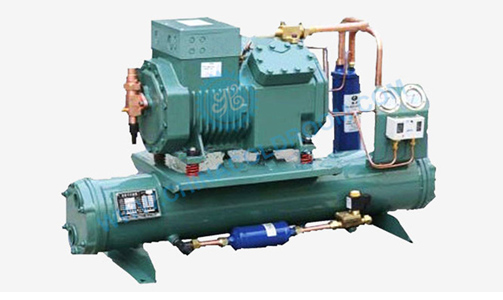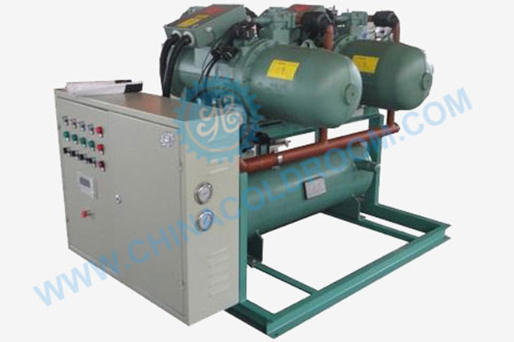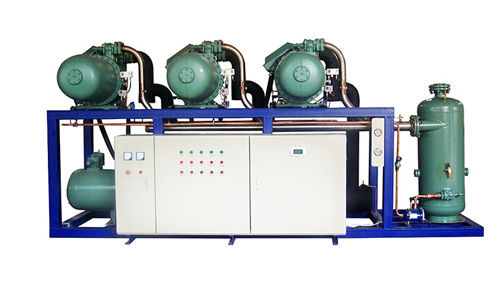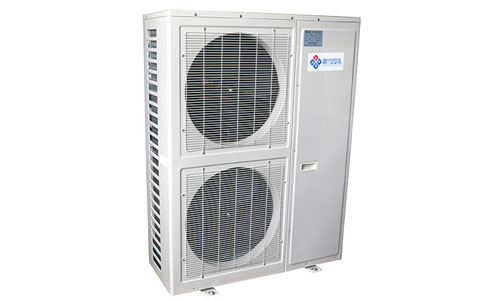Condensing units are essential components in refrigeration and HVAC systems, responsible for converting high-pressure gas into liquid to facilitate efficient cooling. Choosing the right condensing unit for your system involves a balance of performance, efficiency, and cost. Here’s a guide to the key considerations for accurately sizing and selecting condensing units to ensure optimal performance and longevity.
1. Determine Cooling Capacity Requirements
The cooling capacity of a condensing unit, measured in BTUs per hour, is the most critical factor when selecting the right unit for your system. The capacity should match the heat load of the space or system it will serve. This load depends on various factors, including the size of the area, insulation quality, ambient temperature, and intended use. Oversized units can lead to short cycling, which reduces efficiency and increases wear, while undersized units may struggle to maintain the desired temperature, causing premature wear and higher energy costs.
2. Select an Appropriate Compressor Type
Condensing units are equipped with various compressor types, including reciprocating, scroll, screw, and rotary compressors. Each has unique advantages:
Reciprocating Compressors: Suitable for moderate cooling needs, commonly used in smaller commercial and residential applications.
Scroll Compressors: Offer better efficiency and quiet operation, ideal for residential and small commercial systems.
Screw Compressors: Handle larger cooling loads and are commonly used in industrial applications.
Rotary Compressors: Known for compact size and efficiency, used in systems with steady cooling demands.
Select a compressor type based on your system's cooling requirements and operational needs, balancing initial cost and operational efficiency.
3. Choose the Right Refrigerant
Refrigerants play a key role in the performance and environmental impact of a condensing unit. Different refrigerants offer varying levels of efficiency, cooling capacity, and environmental friendliness. Common choices include R-410A, R-407C, and R-134a, each suited for specific applications and climates. The environmental impact of refrigerants is regulated, so choosing a unit compatible with eco-friendly refrigerants can help your system meet current standards and reduce greenhouse gas emissions.

Bitzer Water-Cooled Open-Type Piston Condensing Unit (-10~5℃)
4. Consider Energy Efficiency Ratings
Energy efficiency is crucial for managing operational costs and minimizing environmental impact. Look for condensing units with a high SEER (Seasonal Energy Efficiency Ratio) rating or EER (Energy Efficiency Ratio) rating, as these units consume less energy for the same cooling output. High-efficiency units often come with energy-saving features, such as variable speed compressors, which adjust power usage based on demand, improving overall efficiency and reducing electricity bills.
5. Evaluate Ambient Temperature Compatibility
The ambient temperature of the installation location affects the performance of condensing units. Units designed for extreme temperature conditions, such as high ambient models, are better suited for areas with hot climates. Be sure to select a unit that can maintain optimal cooling efficiency within the temperature ranges typical of the installation environment, as this will prevent performance issues and avoid overloading the compressor in high temperatures.
6. Assess Noise Levels
Noise is a key consideration, particularly in residential and commercial settings where noise pollution is a concern. Some condensing units feature sound-dampening technology, which is beneficial for noise-sensitive locations. Generally, scroll and rotary compressors produce less noise compared to reciprocating compressors. Always check the unit’s noise rating, measured in decibels (dB), and opt for models that minimize sound while still meeting cooling requirements.

Bitzer Water-Cooled Low Temperature Piston Condensing Unit (-20~-15℃)
7. Installation Space and Accessibility
Before purchasing a condensing unit, evaluate the available installation space and accessibility for future maintenance. Ensure the unit can be easily installed and serviced without obstructing air circulation. Units placed in tight or enclosed spaces may experience reduced efficiency due to restricted airflow, leading to higher operating costs and potential breakdowns. Leave adequate clearance around the unit and consider models that are compact and accessible for regular servicing.
Questions and Answers
Q: Can I use any refrigerant with a condensing unit?
Not all condensing units are compatible with every refrigerant. Each unit is designed for specific refrigerants, so it’s essential to select one that supports environmentally friendly and efficient refrigerants suitable for your application.
Q: How can I determine the correct cooling capacity for my condensing unit?
A professional HVAC technician can perform a heat load calculation to determine the cooling capacity needed based on factors like area size, insulation, and external temperatures. Matching the cooling load ensures optimal performance and efficiency.
Q: Why is energy efficiency so important in condensing units?
Energy-efficient units reduce electricity consumption, lowering utility costs and environmental impact. Efficient models, particularly those with high SEER or EER ratings, perform well while consuming less energy, saving on long-term operational costs.
By considering these factors, you can select a condensing unit that provides efficient cooling, durability, and operational cost savings while meeting environmental standards. This careful selection process can enhance your HVAC or refrigeration system’s performance and longevity.
Kendall is a professional manufacturer of condensing units, View our website https://www.kendallcool.com to find the products you need, request a quote, or contact us for more assistance or additional information.








